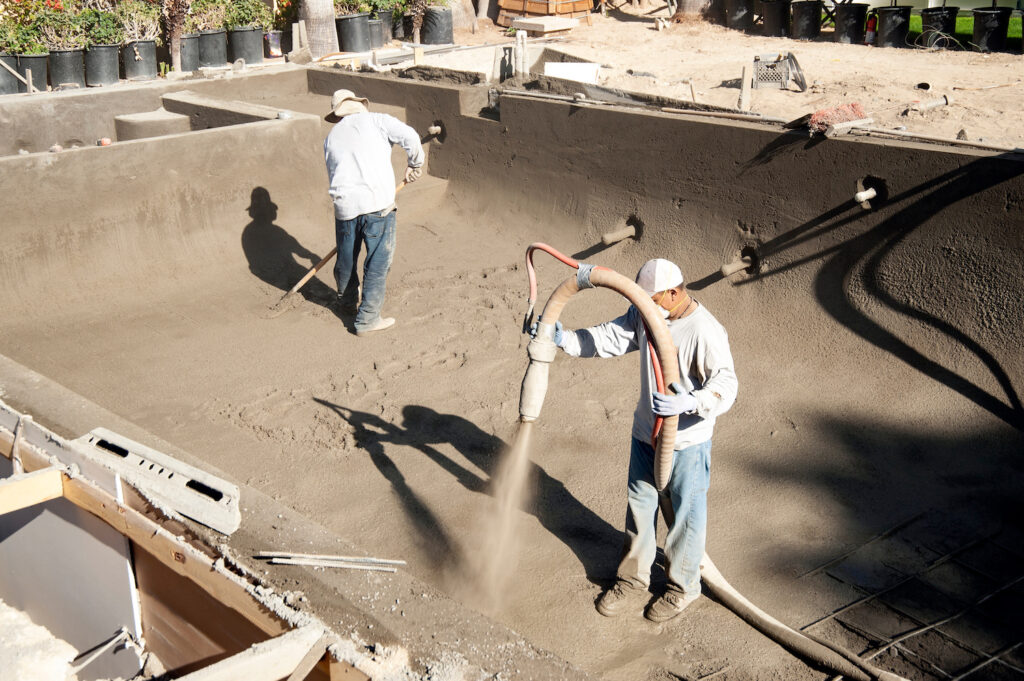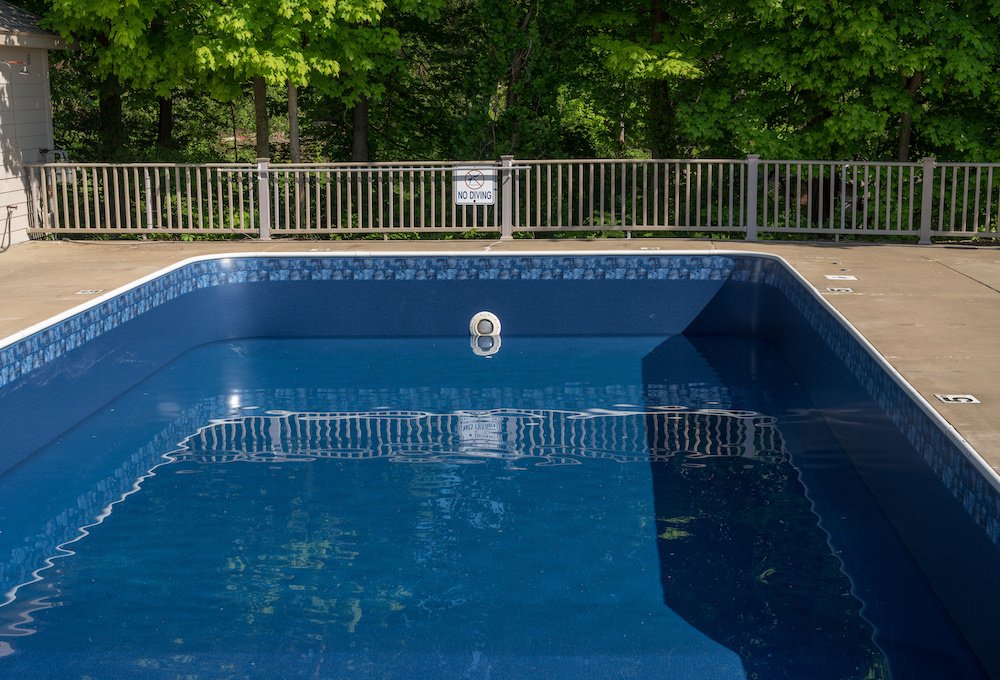Concrete vs. Vinyl Pool: Which One Should You Get?

Putting in a new pool is exciting, giving you a way to cool off during hot summers, spend time with family and friends, and get exercise. When you’re exploring your options, you may need to choose between a concrete pool and a vinyl pool. Both have their merits, but they stand out for different reasons. When it comes to a concrete vs. vinyl pool, here’s what you need to know.
What Is a Concrete Pool?
A concrete pool is an inground pool with a pool shell made of cement, sand, and coarse aggregate. The mixture is sprayed on wet and smoothed. Then, it cures, leaving you with a durable shell that stands up to wear and tear better than some alternatives.

What Is a Vinyl Pool?
A vinyl pool is an inground pool that uses panels as the basis for the pool’s structure. First, a foundational material is used to support the structure, and then the panels are put in place. Once the structural elements are installed, a vinyl sheet is secured over the structure, leaving you with a smooth, lower maintenance surface.

How Much Does a Concrete Pool Cost?
The cost of a concrete pool varies, primarily based on its size and shape. Installing a new concrete pool typically costs between $30,000 and $60,000, though a higher price – even $100,000+ – is possible.
When it comes to annual maintenance, the cost is usually $2,750+. However, a properly installed concrete pool can last 50 years or more as long as it’s properly maintained.
How Much Does a Vinyl Pool Cost?
When you’re comparing concrete vs. vinyl pools, vinyl pools are the less expensive option. The cost varies depending on the size and design. It usually falls in the $25,000 to $45,000 range but can be higher if the pool is large or the shape is unique.
For yearly maintenance, pool owners usually spend $1,325+. You’ll also need to replace the liner every 5 to 10 years, depending on the exact material, conditions, use, and more.
Concrete Pool Maintenance
Maintaining a concrete pool properly is essential to ensure it lasts. Generally, you’ll need to brush the walls frequently to prevent build-up, perform regular acid washes, and keep the chemicals in the water balanced. Additionally, replastering may be necessary to repair issues with the surface, including divots or cracks.
Vinyl Pool Maintenance
With a vinyl pool, regularly brushing the liner is critical to remove dirt and debris. Additionally, you need to keep the chemicals balanced to keep the vinyl from aging too quickly and prevent scaling. Tending to the water line is also essential, and you’ll have to replace the liner every 5 to 10 years.
Which One Is Best for You?
When you’re comparing concrete vs. vinyl pool options, both have merit. As a result, you need to factor in your needs and preferences.
Generally, installing and maintaining a vinyl pool costs less, so it’s a better choice for the budget-conscious. Additionally, you can get liners in an array of designs and colors, which could make it easier to get your preferred look.
Concrete pools have longer lifespans. Plus, custom shapes or non-traditional depths are options. However, they’re more expensive, but are worth considering if you plan to stay in your home for a long time.
Contact Driggs to Learn More
If you want to install a new pool and are deciding between a concrete vs. vinyl pool, the team at Driggs Construction is here to answer your questions. Contact Driggs to learn more today.
Recent Comments